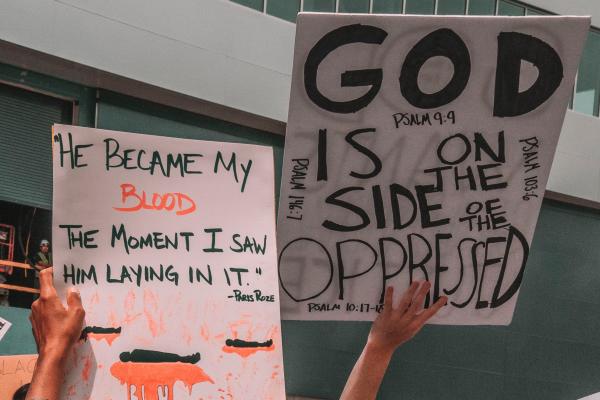Jun 5, 2020
When the spirit came down and lit a fire in the remnant of Jesus followers on Pentecost, those followers immediately went out to the streets and protested.
Read the Full Article

Already a subscriber? Login

When the spirit came down and lit a fire in the remnant of Jesus followers on Pentecost, those followers immediately went out to the streets and protested.
